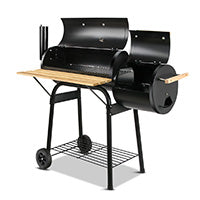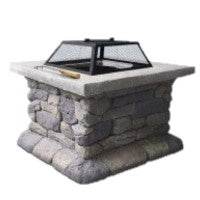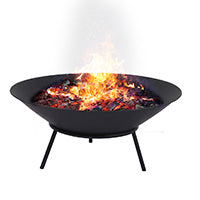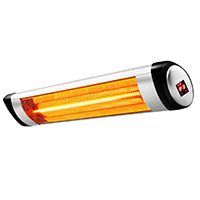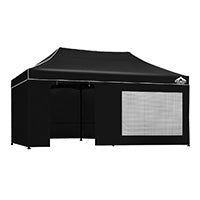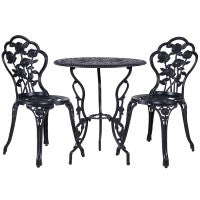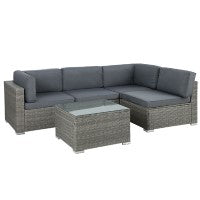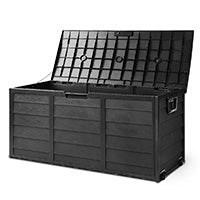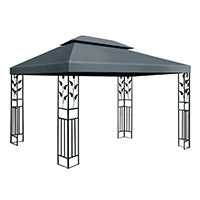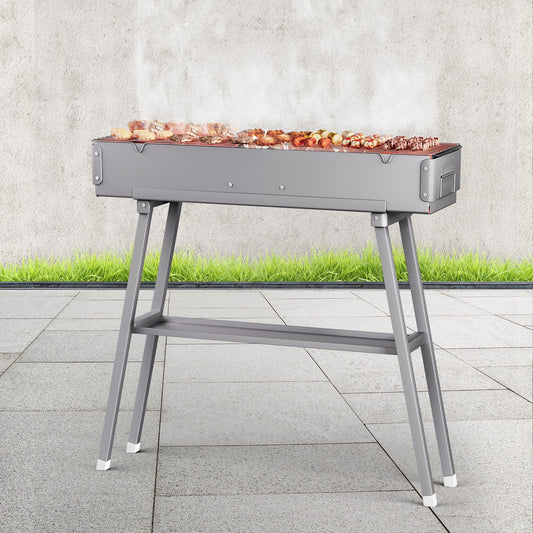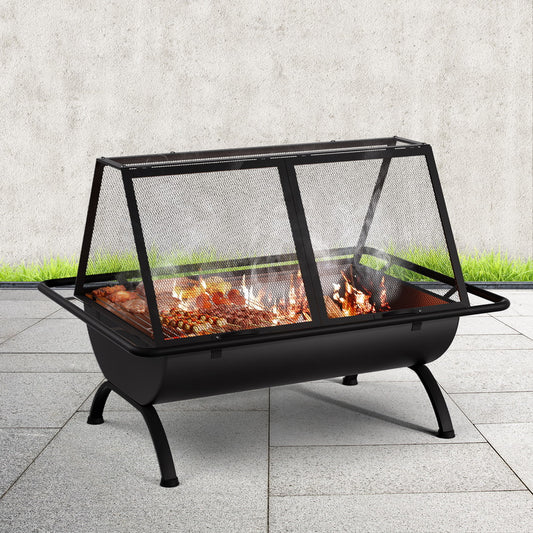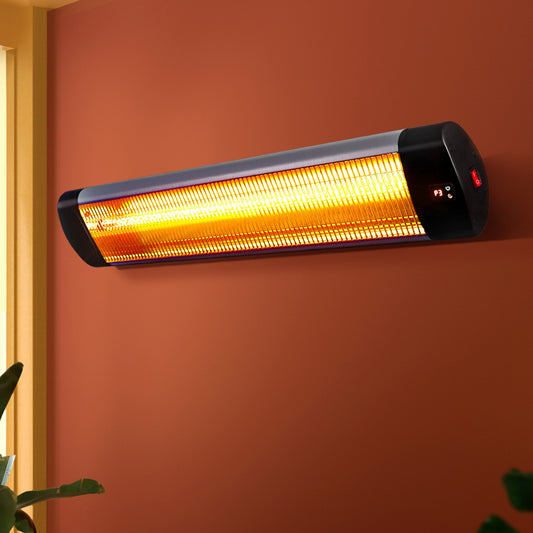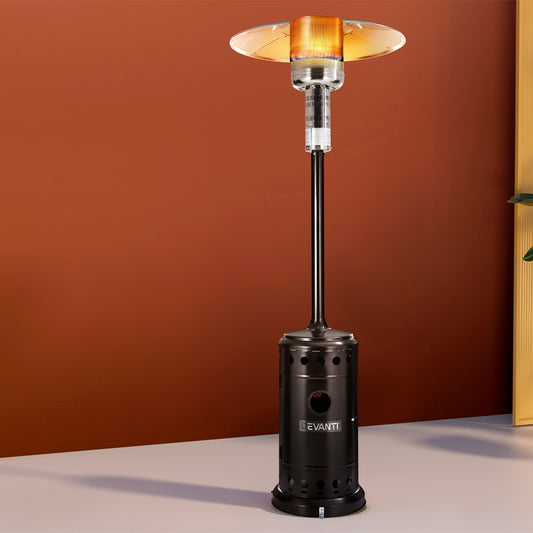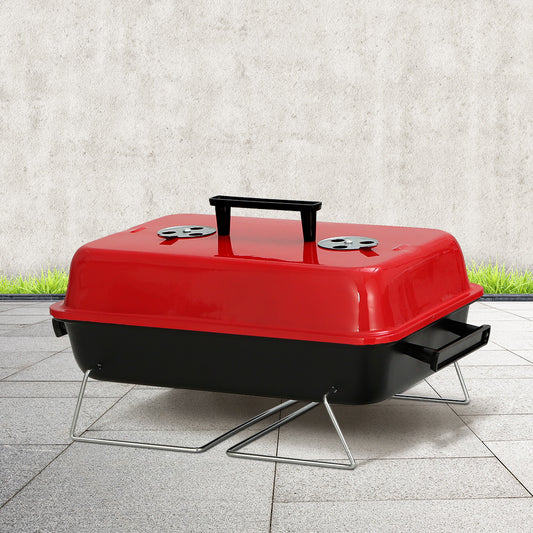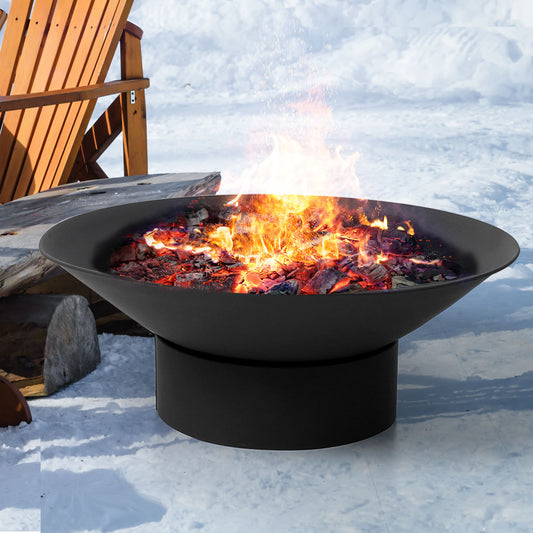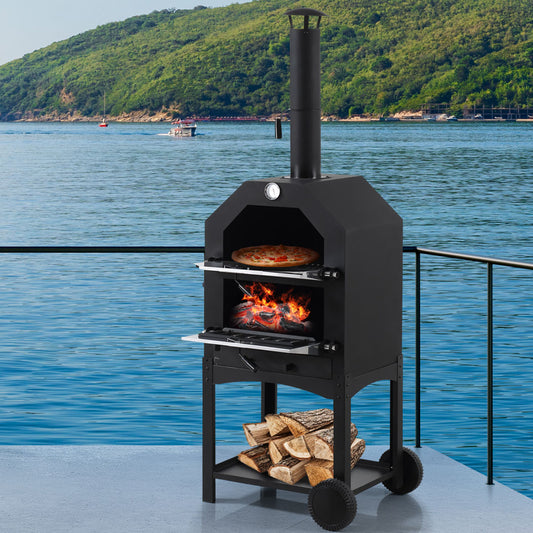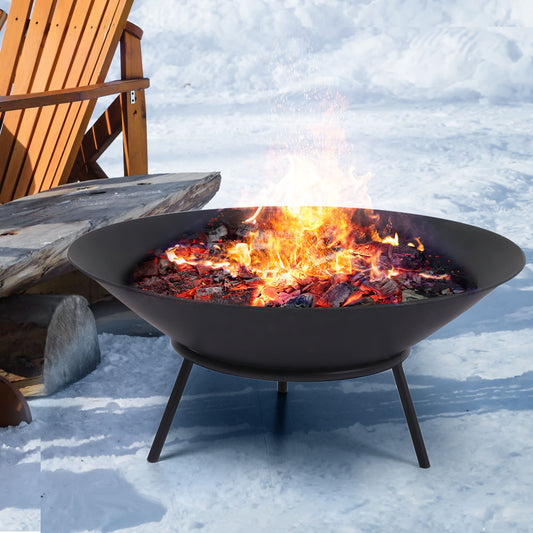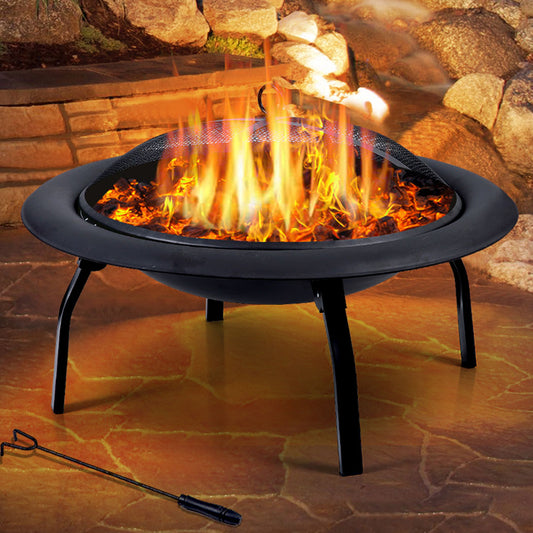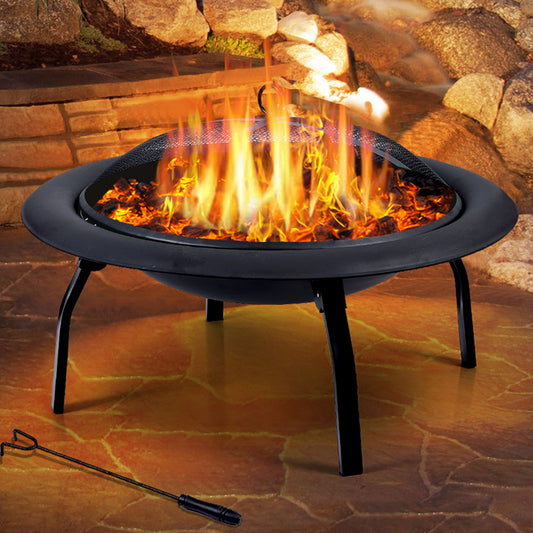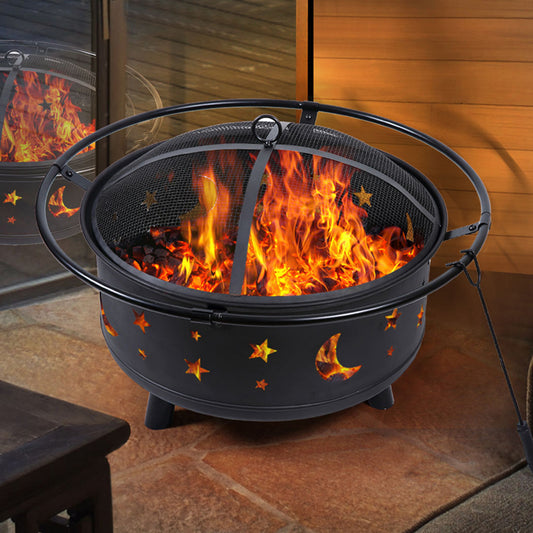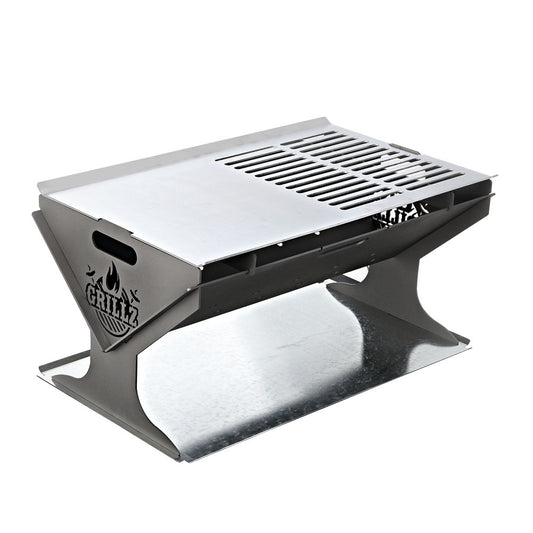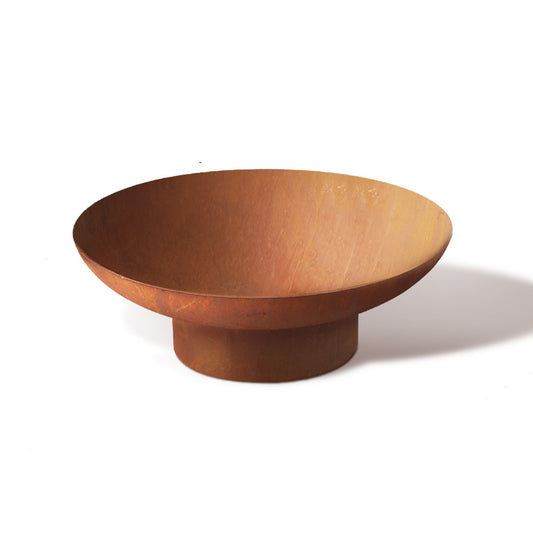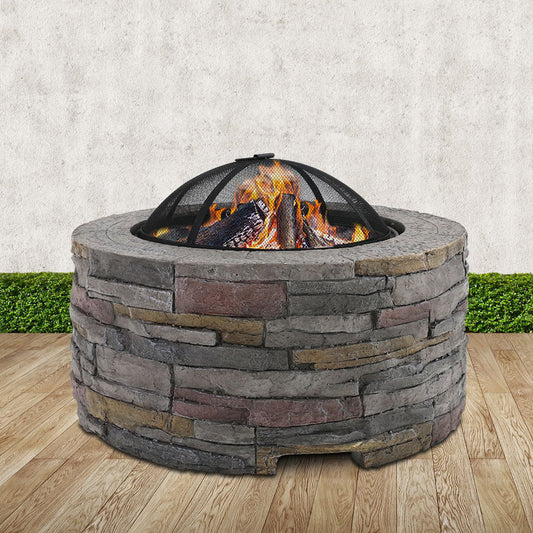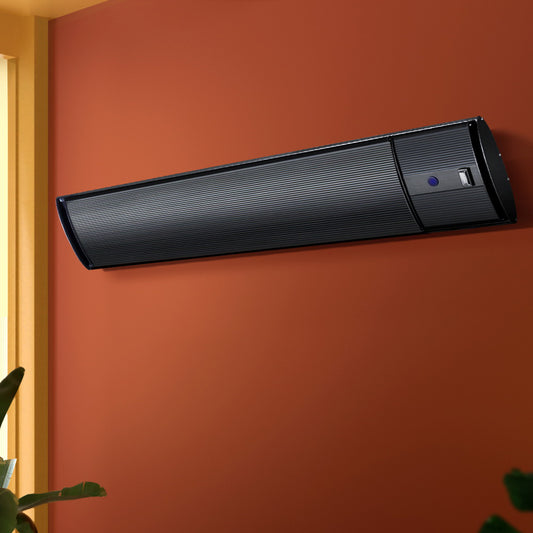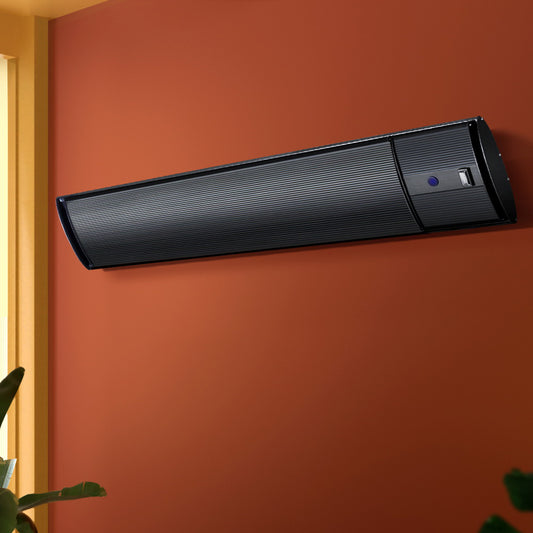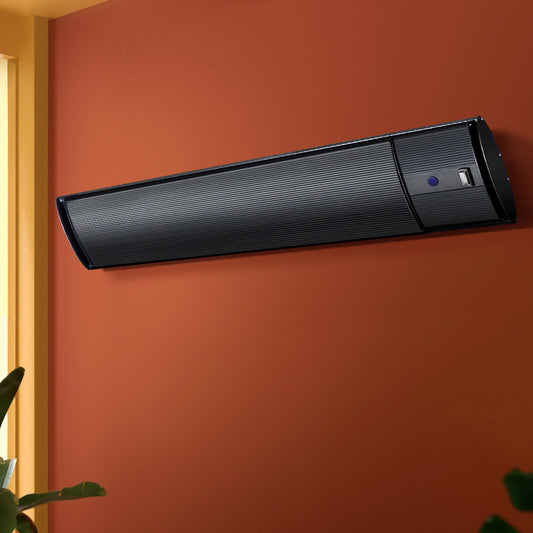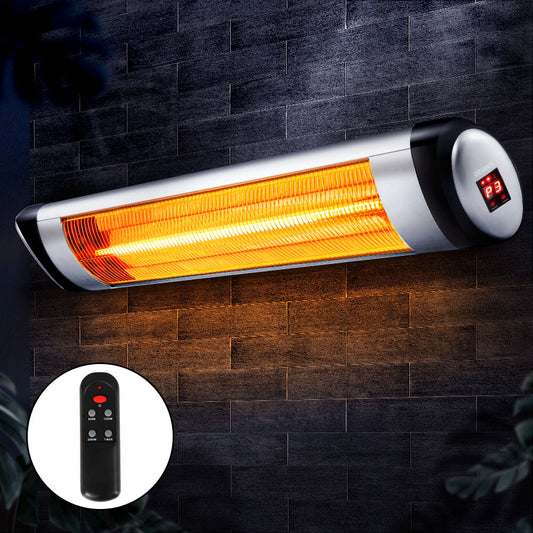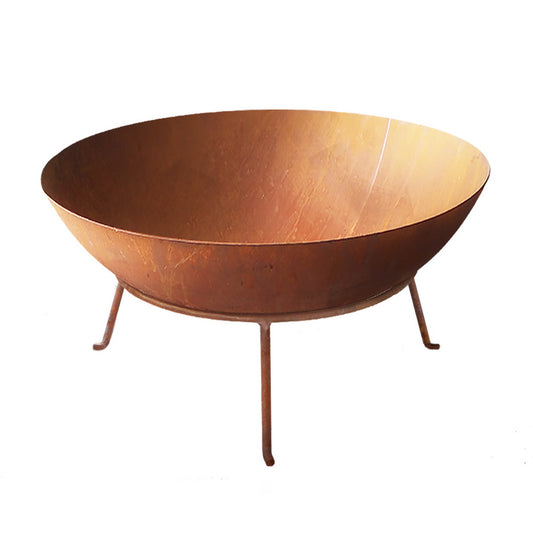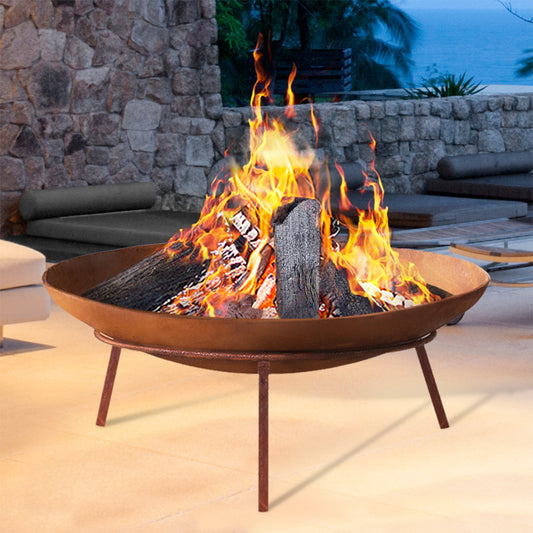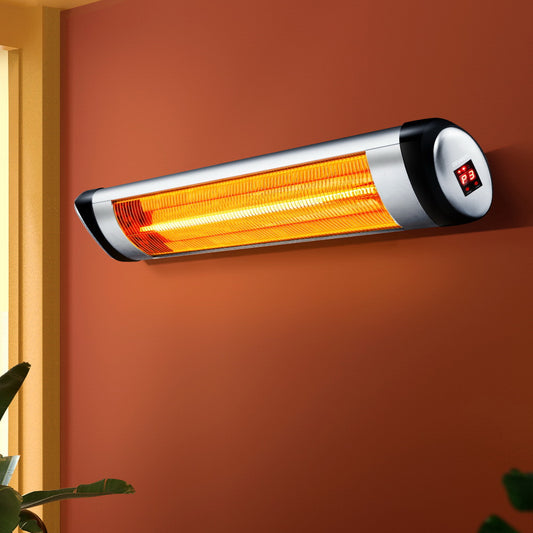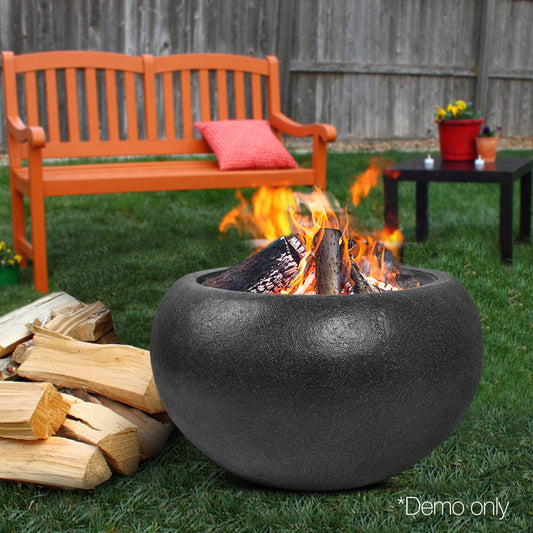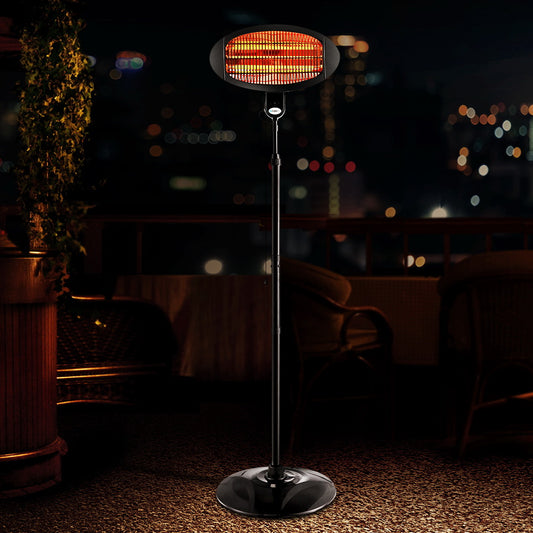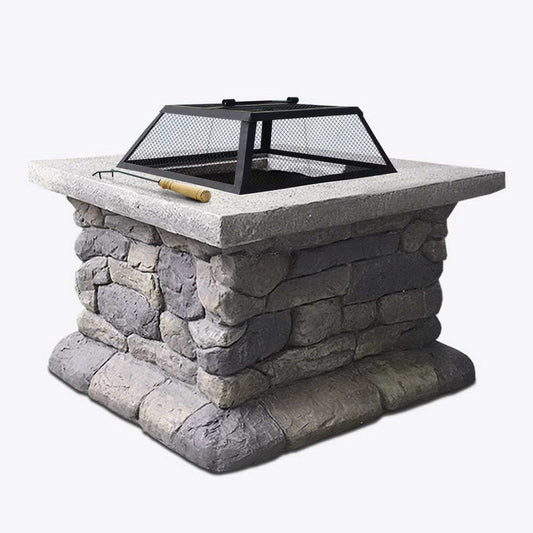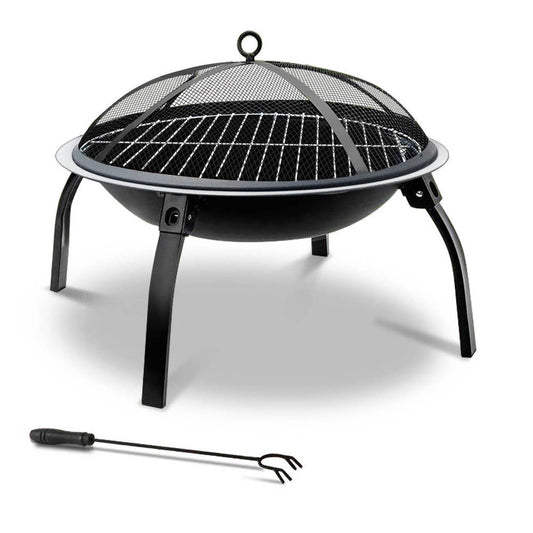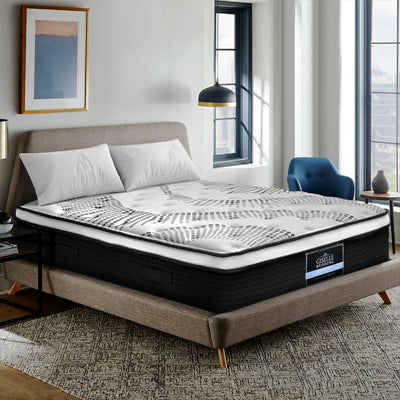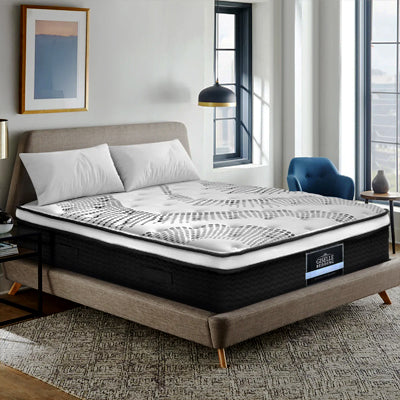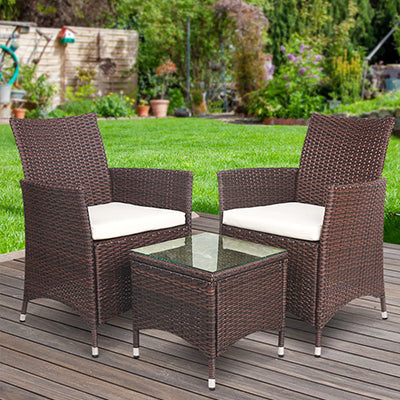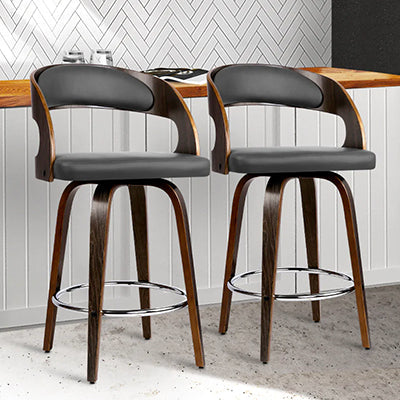Outdoor Heating
-
BBQ Grill Charcoal Smoker Barbecue Portable
RRP $275.99(Was $164.41)Regular price $144.56Sale price Now $144.56Regular priceSave $131!
(Was $164.41)Unit price perSave $131!
Sold out -
Fire Pit BBQ Grill Outdoor Fireplace Steel
RRP $419.99(Was $229.92)Regular price $184.83Sale price Now $184.83Regular priceSave $235!
(Was $229.92)Unit price perSave $235!
Sold out -
Electric Strip Heater Radiant Heaters 3000W
RRP $260.39(Was $179.45)Regular price $149.08Sale price Now $149.08Regular priceSave $111!
(Was $179.45)Unit price perSave $111!
Sold out -
13.5kw Outdoor Gas Patio Heater - Black
RRP $399.59(Was $335.78)Regular price $294.70Sale price Now $294.70Regular priceSave $105!
(Was $335.78)Unit price perSave $105!
Sold out -
Charcoal BBQ Portable Grill Camping Barbecue Outdoor Cooking Smoker
Rated 4.0 out of 5 stars1RRP $80.39(Was $78.23)Regular price $69.65Sale price Now $69.65Regular priceSave $11!
(Was $78.23)Unit price perSave $11!
Sold out -
2 in 1 Steel Fire Pit Bowl Garden Outdoor Patio Fireplace Heater 70
RRP $298.80Regular price $234.87Save $64Sale price Now $234.87 Regular priceUnit price perSold out -
3 in 1 Charcoal BBQ Grill Steel Pizza Oven Smoker Outdoor Portable Barbecue Camp
RRP $599.99Regular price $409.85Save $190Sale price Now $409.85 Regular priceUnit price perSold out -
2IN1 Steel Fire Pit Bowl Firepit Garden Outdoor Patio Fireplace Heater 70cm
RRP $298.80Regular price $244.82Save $54Sale price Now $244.82 Regular priceUnit price perSold out -
22" Portable Outdoor Fire Pit BBQ Grail Camping Garden Patio Heater Fireplace
RRP $142.80Regular price $129.08Save $14Sale price Now $129.08 Regular priceUnit price perSold out -
30" Portable Outdoor Fire Pit BBQ Grail Camping Garden Patio Heater Fireplace
RRP $189.60(Was $210.57)Regular price $169.67Sale price Now $169.67Regular priceSave $20!
(Was $210.57)Unit price perSave $20!
Sold out -
Outdoor Fire Pit BBQ Portable Wood Camping Fireplace Heater Patio Garden Grill
RRP $213.60(Was $207.46)Regular price $179.15Sale price Now $179.15Regular priceSave $34!
(Was $207.46)Unit price perSave $34!
Sold out -
Fire Pit BBQ Outdoor Camping Portable Patio Heater Folding Packed Steel
RRP $339.59(Was $179.45)Regular price $89.45Sale price Now $89.45Regular priceSave $250!
(Was $179.45)Unit price perSave $250!
Sold out -
Outdoor Fire Pit Garden Charcoal Fireplace Patio Heater Vintage Pits 80CM
RRP $407.99(Was $305.21)Regular price $274.03Sale price Now $274.03Regular priceSave $134!
(Was $305.21)Unit price perSave $134!
Sold out -
Fire Pit Outdoor Table Charcoal Fireplace Garden Firepit Heater
RRP $527.99(Was $301.83)Regular price $164.82Sale price Now $164.82Regular priceSave $363!
(Was $301.83)Unit price perSave $363!
Sold out -
Electric Radiant Strip Heater Outdoor 3200W
RRP $560.39Regular price $484.06Save $76Sale price Now $484.06 Regular priceUnit price perSold out -
Electric Radiant Strip Heater Outdoor 2400W
RRP $560.39(Was $354.68)Regular price $279.72Sale price Now $279.72Regular priceSave $281!
(Was $354.68)Unit price perSave $281!
Sold out -
Electric Radiant Strip Heater Outdoor 1800W
RRP $500.39(Was $314.50)Regular price $229.77Sale price Now $229.77Regular priceSave $271!
(Was $314.50)Unit price perSave $271!
Sold out -
Electric Strip Heater Radiant Heaters 2000W
RRP $218.39(Was $190.84)Regular price $159.03Sale price Now $159.03Regular priceSave $59!
(Was $190.84)Unit price perSave $59!
Sold out -
Fire Pit Outdoor Heater Charcoal Rustic Burner Steel Fireplace 70CM
Rated 5.0 out of 5 stars1RRP $305.99(Was $175.86)Regular price $169.51Sale price Now $169.51Regular priceSave $136!
(Was $175.86)Unit price perSave $136!
Sold out -
Rustic Fire Pit Heater Charcoal Iron Bowl Outdoor Patio Wood Fireplace 60CM
RRP $309.59(Was $199.35)Regular price $119.13Sale price Now $119.13Regular priceSave $190!
(Was $199.35)Unit price perSave $190!
Sold out -
Electric Strip Heater Radiant Heaters 1500W
Rated 5.0 out of 5 stars1RRP $146.39(Was $131.20)Regular price $124.86Sale price Now $124.86Regular priceSave $22!
(Was $131.20)Unit price perSave $22!
Sold out -
Oval Outdoor Portable Fire Pit Bowl Wood Burning Patio Oven Heater Fireplace
Rated 4.5 out of 5 stars2RRP $460.79(Was $258.21)Regular price $149.97Sale price Now $149.97Regular priceSave $311!
(Was $258.21)Unit price perSave $311!
Sold out -
Electric Patio Heater 2000W - Black
RRP $239.99Regular price $154.61Save $85Sale price Now $154.61 Regular priceUnit price perSold out -
Fire Pit Outdoor Table Charcoal Garden Fireplace Backyard Firepit Heater
Rated 5.0 out of 5 stars2RRP $479.99(Was $327.06)Regular price $159.40Sale price Now $159.40Regular priceSave $321!
(Was $327.06)Unit price perSave $321!
Sold out -
Fire Pit BBQ Charcoal Grill Smoker Portable Outdoor Camping Garden Pits 30"
RRP $203.99(Was $177.46)Regular price $154.08Sale price Now $154.08Regular priceSave $50!
(Was $177.46)Unit price perSave $50!
Sold out
You might need these too
What Type Of Heater Is Best For Outside?
Outdoor heaters come in many different shapes and sizes, but they all have one common goal: to keep you warm when temperatures start to drop. Here are some pros and cons of each type of outdoor heater so you know which one is best for your outdoor space!
Gas-powered outdoor heaters are a popular choice for many people because they are relatively inexpensive to operate and easy to set up. Gas heaters are typically the most powerful, providing instant heat at the push of a button. However, they can also be dangerous if not used properly, so it's important to read the manufacturer's instructions carefully before using one.
Outdoor radiant heaters are another popular option, and they work by emitting infrared waves that heat objects directly. This makes them ideal for use in areas where people will be moving around, as the heat will follow them as they move. While they are ideal for providing targeted heat, outdoor radiant heaters can be less effective in windy conditions.
Outdoor electric heaters are a very popular option, and they are also the safest and most convenient to use. They generate heat through coils that emit infrared waves, so there is no risk of fire or gas leaks. Electric heaters are the most common type of outdoor heater, and they offer a convenient way to enjoy the outdoors without breaking the bank. Plus, they can be plugged into standard electrical outlets, making them easy to set up and use. However, electric heaters can be less effective in colder temperatures and may not provide enough power to warm large spaces.
Whichever type of outdoor heater you choose, make sure to read the instructions carefully and take precautions to ensure your safety.
Are Outdoor Heaters Worth It?
Outdoor heaters are a great way to extend the use of your outdoor space, but they can be expensive to purchase and operate. Before you decide whether or not an outdoor heater is right for you, it’s important to consider the cost and the benefits.
One of the biggest benefits of an outdoor heater is that it allows you to use your outdoor space for longer periods of time. If you have an outdoor patio or deck, an outdoor heater can extend your usage by several months. In addition, an outdoor heater can provide a comfortable and inviting atmosphere for social gatherings. If you entertain often, an outdoor heater can be a valuable addition to your home.
However, there are also some significant cost considerations to take into account. Outdoor heaters typically use either propane or electricity as a fuel source, and both fuel types have a cost consideration attached to them, dependent on your usage. In addition, outdoor heaters need to be properly maintained in order to function safely and efficiently. Maintenance doesn’t need to be particularly rigorous, just enough to make sure pilot lights are working, pipes aren’t blocked and that they aren’t cracked.
Overall, there are both advantages and disadvantages to using an outdoor heater. It’s important to weigh the costs and benefits carefully before making a decision. With careful consideration, you can find the right solution for your needs.
Can Outdoor Heaters Stay Outside?
Outdoor heaters are a great way to extend the outdoor season and enjoy your patio or deck well into the cooler months. But can outdoor heaters stay outside? The answer depends on the type of outdoor heater you have. Gas outdoor heaters, for example, must be vented to the outside in order to avoid the build-up of carbon monoxide. This means that they are not recommended for use indoors or in any enclosed space.
Electric outdoor heaters, on the other hand, do not need to be vented and can therefore be used both indoors and out. However as they use electricity to run, it is advisable not to leave these heaters out where they can be damaged by rain and other elements. This can be a safety hazard. Thankfully most electric heaters are light and portable enough to not be too much of a hazard when moving indoors or under cover.
Radiant outdoor heaters work by emitting infrared waves, which make them safe to use indoors as well. However, all outdoor heaters should be used with caution and always kept away from flammable materials. So whether you have a gas, electric, or radiant outdoor heater, as long as you use it safely, you can enjoy your outdoor space all year round.
What Type Of Heater Is Best For Outside?
The best type of heater for outside is greatly dependent on the use that you have planned for the heater. For example, the best heater for a small space is unlikely to be the best heater for a large space. Also, the question of whether the heater will be protected from the elements while it is outside can lead to different answers as to which is best for the job.
In the case of gas heaters, they are often considered to be a quality option for larger outdoor spaces as they are inexpensive to run and the heat that they emit is built up and spread faster than other outdoor heater options that are available. Outdoor gas heaters are also considered to be a viable option when there is cause for entertaining under variable weather conditions. This is because they are generally heavier freestanding heaters in which the gas power source is enclosed within the heater itself.
With electrical heaters, these may be better suited for smaller spaces. There are a few reasons for this. The first is that electric heaters are notoriously quiet, especially when paired next to an outdoor gas heater. They also tend to emit heat over a smaller radius which makes them less suitable for large spaces. Thirdly, electric outdoor heaters are free of smell, which can be an issue when using a gas heater in a small space.
Infrared heaters are perfect for small spaces and generally make almost no noise. The infrared heater comes into its own when it comes to understatement and stealth. If you’re looking to keep your space free from clutter and would like a heater mounted in an unconventional position, infrared heaters are often one of the best choices.




